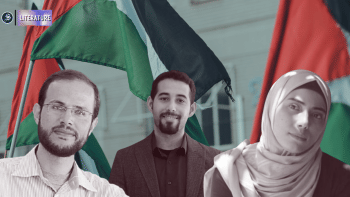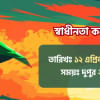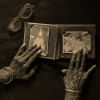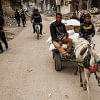The morgues are full

Another explosion rattles Gaza to its core. The air thick with stench of blood, grief and promises the world failed to keep. But other headlines hypnotise, luring us into familiar distractions–a shift in the stock market, a royal wedding, or an actor's bold choice of an outfit. Oh, the horror! Pick and choose your crisis of the day, sorrows and prayers included. The world's concern flows like a selective breeze, touching only the places where it's trendy and neat.
Our empathy is an empty canvas, painted only with tones we find fitting. We like it when our feeds are pretty, our outrage is tidy and the world's tragedies don't spill into our carefully curated, aesthetic timelines. It is almost too easy to scroll past the images of destruction, assuring ourselves that our silence is indifference–a "neutral act"–rather than acknowledging that saying nothing is, in itself, participation. Who gets to decide which suffering is unbearable and which is routine?
We see grief as a commodity, reduced to fragments of pain for easy digestion. We prefer the ones that fit seamlessly into our dinner conversations, the ones that don't challenge our sense of comfort or ask us to confront our own complicity. A shift in the weather, a sports team's loss, a billionaire's latest venture. The world stirs, debates, fills comment sections with rage. We turn away from true devastation, the stories that demand more than just our passing attention because they ask too much of us: our consciousness, compassion, and commitment.
In Gaza, the names of the martyrs slip through silence, lost to a world too distracted to listen. We scroll down on our feed and the lives lost, names forgotten, remain buried under the rubble of a world too busy to care. The air, saturated with blood, tells us a story we will never know. The headlines shift, racing past the truth in pursuit of the next spectacle. We stand at the edge of their despair but it is easier to look away, to lose ourselves in the illusion that our convenience is more valuable. The world weeps for some, but not for others. We light candles for the chosen, while darkness swallows those unseen.
But the morgues are full. The weight of loss isn't carried in the headlines but in the heavy silence that follows. We can continue to look the other way, hoping that it fades away if we turn our gaze long enough and move on with our lives, distracted by the next trending news. And yet, the morgues will remain full–a haunting testament and a deafening echo of our silence.
Nafisa Afreen Megha is an aspiring writer from Dhaka, Bangladesh. Her work consists of her thoughts, carefully put into words and turned to poetry. She is currently pursuing a Bachelor of Arts in English at North South University.

 For all latest news, follow The Daily Star's Google News channel.
For all latest news, follow The Daily Star's Google News channel. 










Comments